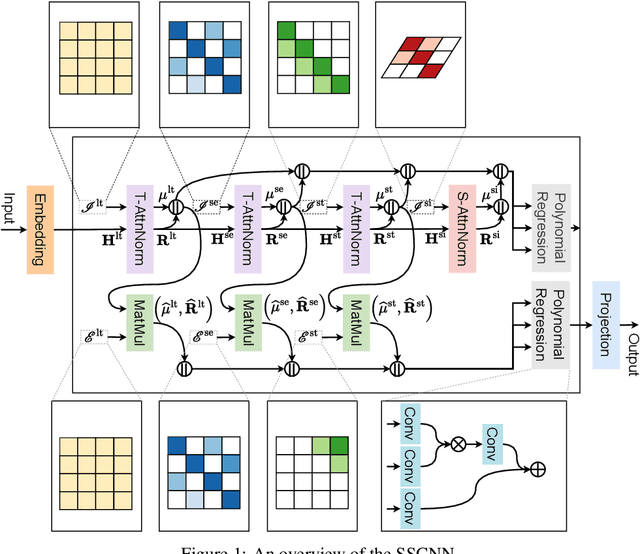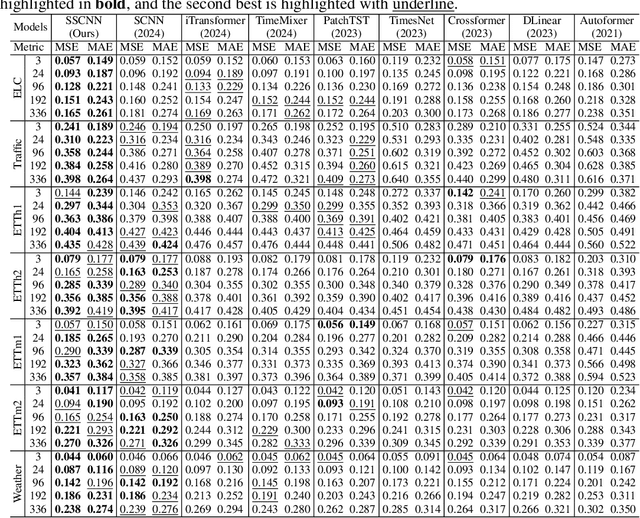The Bigger the Better? Rethinking the Effective Model Scale in Long-term Time Series Forecasting
Paper and Code
Feb 03, 2024



Long-term time series forecasting (LTSF) represents a critical frontier in time series analysis, distinguished by its focus on extensive input sequences, in contrast to the constrained lengths typical of traditional approaches. While longer sequences inherently convey richer information, potentially enhancing predictive precision, prevailing techniques often respond by escalating model complexity. These intricate models can inflate into millions of parameters, incorporating parameter-intensive elements like positional encodings, feed-forward networks and self-attention mechanisms. This complexity, however, leads to prohibitive model scale, particularly given the time series data's semantic simplicity. Motivated by the pursuit of parsimony, our research employs conditional correlation and auto-correlation as investigative tools, revealing significant redundancies within the input data. Leveraging these insights, we introduce the HDformer, a lightweight Transformer variant enhanced with hierarchical decomposition. This novel architecture not only inverts the prevailing trend toward model expansion but also accomplishes precise forecasting with drastically fewer computations and parameters. Remarkably, HDformer outperforms existing state-of-the-art LTSF models, while requiring over 99\% fewer parameters. Through this work, we advocate a paradigm shift in LTSF, emphasizing the importance to tailor the model to the inherent dynamics of time series data-a timely reminder that in the realm of LTSF, bigger is not invariably better.
 Add to Chrome
Add to Chrome Add to Firefox
Add to Firefox Add to Edge
Add to Edge